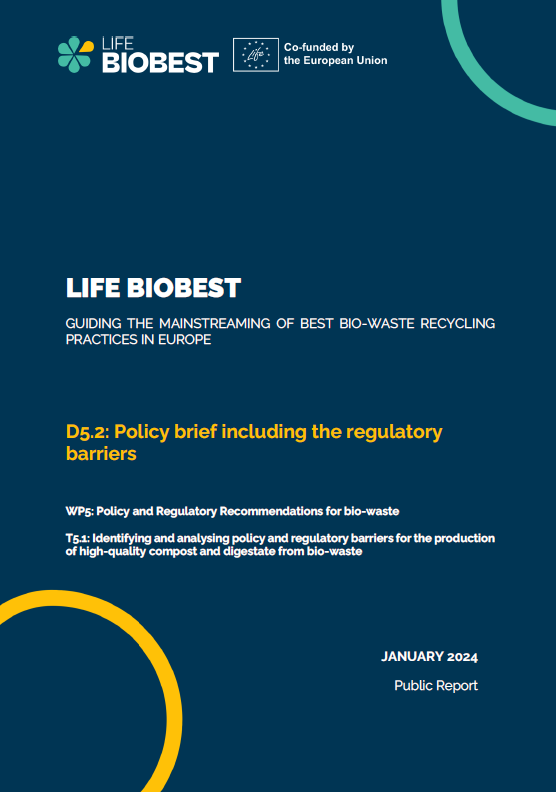
Ahead of the EU bio-waste separate collection mandate in January 2024, LIFE BIOBEST‘s Deliverable 5.2 identifies the gaps in the regulatory framework and systemic barriers obstructing efficient bio-waste management with high capture rates of high-quality material.
LIFE BIOBEST interviewed 15+ expert stakeholders from across the EU to discuss the difficulties of meeting the landfill and recycling targets as well as the mandate for separate collection of bio-waste. This report investigates the status of transposition and management results of the EU legal framework and proposes recommendations and calls to action.
Available in English.
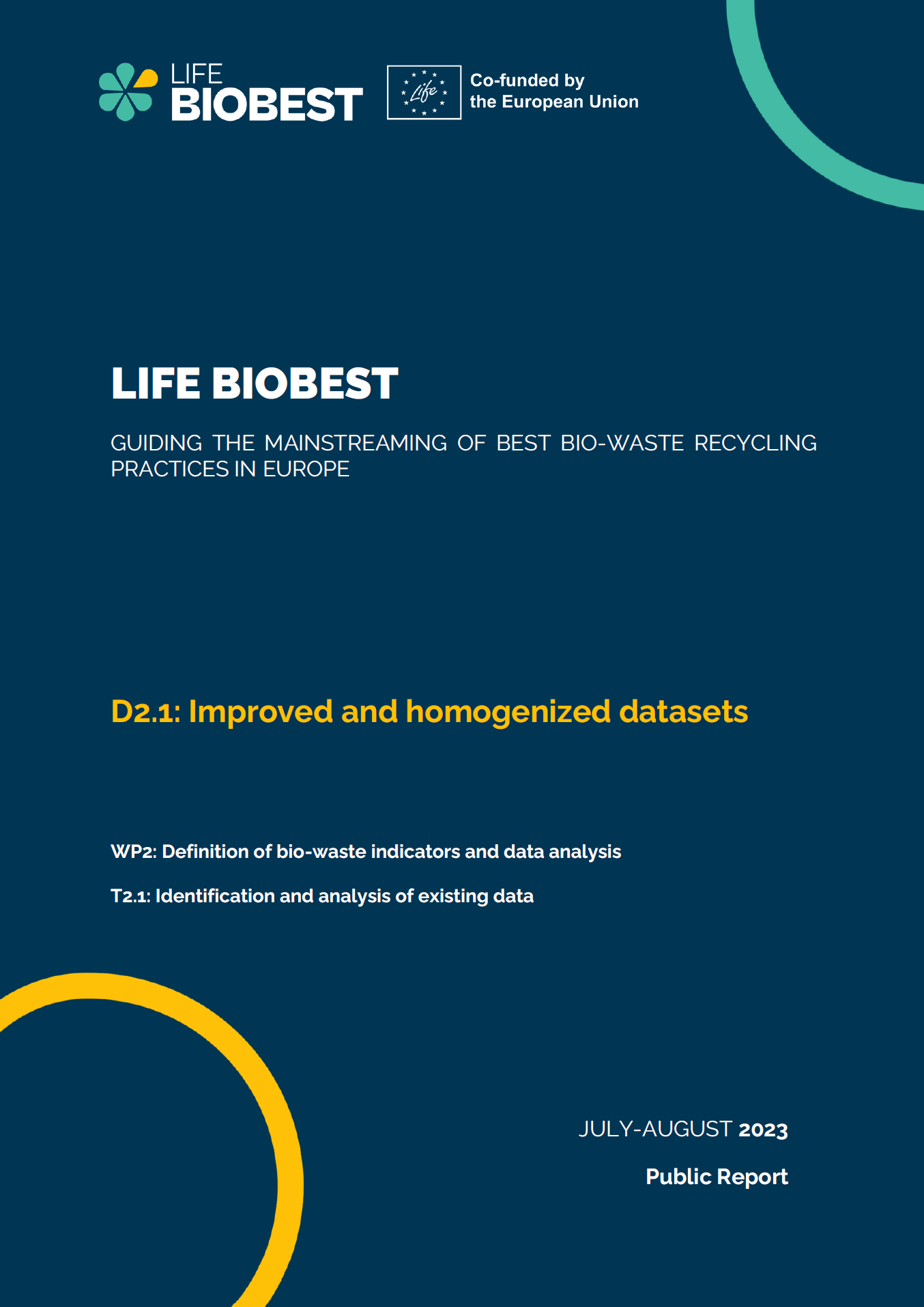
Released for public dissemination by the LIFE BIOBEST project, this report consists of a homogenised dataset on municipal bio-waste management.
Originating from an investigation into the current status of data collection and reporting in the European Union, the publication contains data on basic information and boundary conditions for bio-waste collection and treatment for nearly all 27 EU Member States, as well as a detailed dataset exploring the collection per capita of food waste and garden waste at the municipal level for Italy, Denmark, and Catalonia.
Available in English.
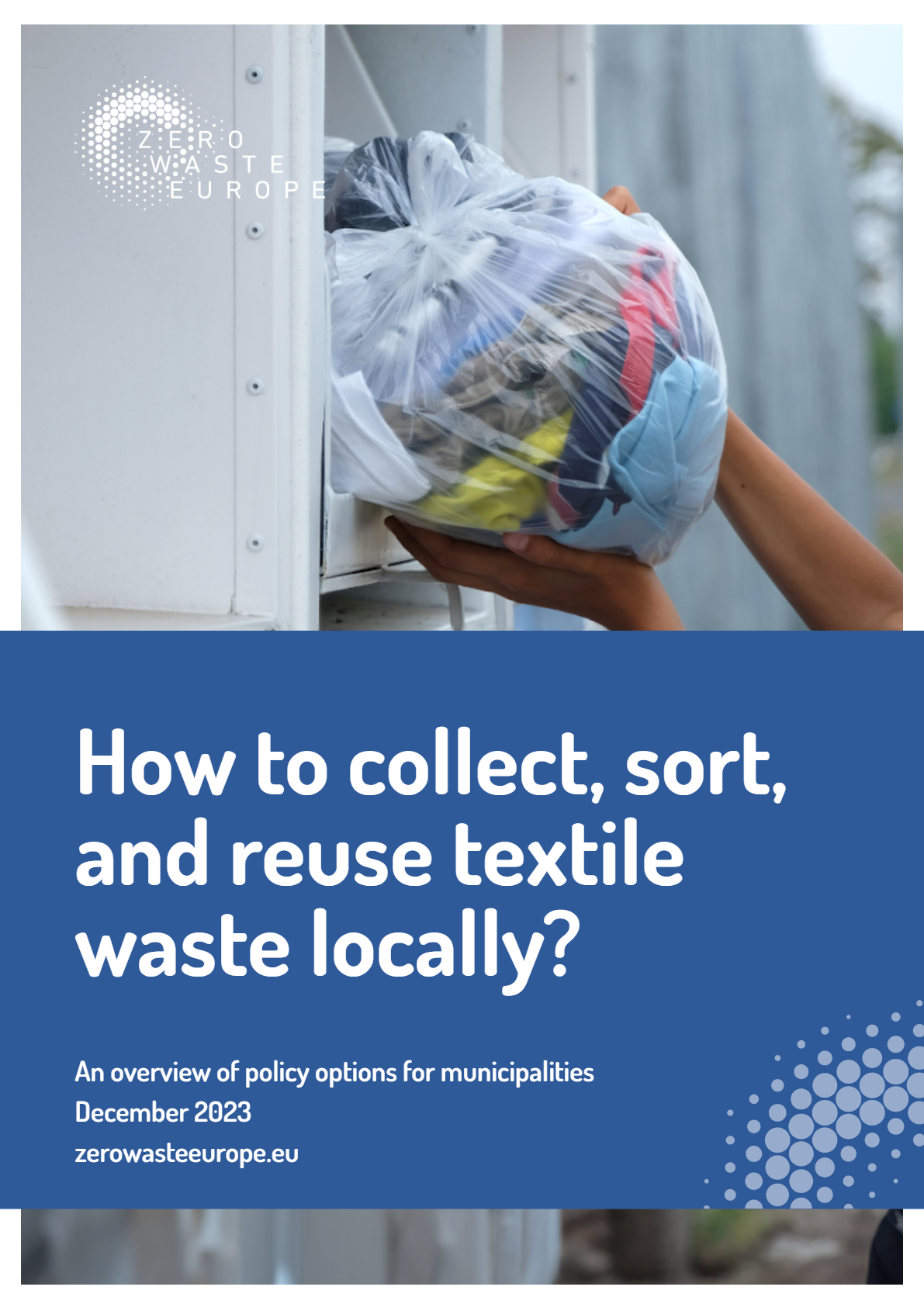
In view of the EU-wide mandatory separate collection of textile waste as of 2025, municipalities have the chance to align textile collection with the waste hierarchy and support a system of local reuse, particularly for clothing. This paper provides municipalities with an overview of good practices and lessons learned from the separate collection of textile waste across Europe.
An optimised collection system can support the implementation of local zero waste solutions. While there is no one-size-fits-all solution, we have identified key success factors, including adopting the collection method to the needs of citizens, mandating quality sorting for reuse, promoting local reuse, and setting up a good governance structure. The governance of the system should seek to integrate the local collection and reuse into the wider policy framework and link social policies with circular economy objectives.
Municipalities hold key levers to steer the system towards local reuse by requiring collectors to generate and report data as well as set performance indicators in line with the waste hierarchy. Finally, the system must anticipate the introduction of the EU-wide introduction of the Extended Producer Responsibility (EPR) scheme for textiles, which is currently being negotiated at the EU level and is likely to become mandatory in all Member States after 2027.
Available in English.
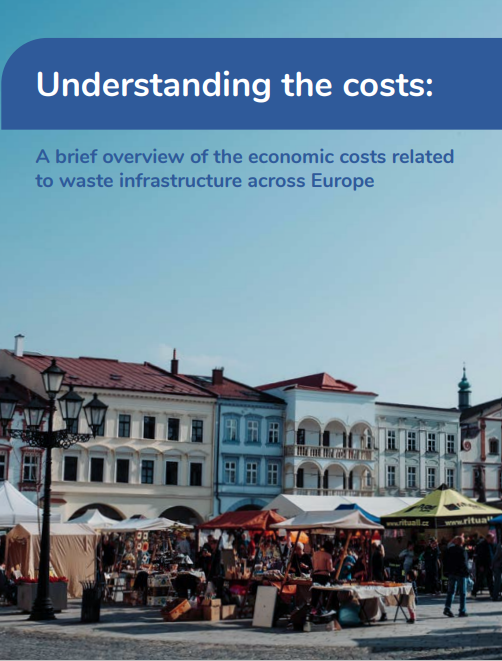
In the current landscape of European municipalities, the shift towards zero waste is undeniably grounded in environmental concerns. The environmental advantages of embracing a zero waste approach are evident, but from an economic perspective, the municipal standpoint becomes somewhat less clear.
This report serves as an introductory guide for those seeking a comprehensive understanding of the costs and financing involved in establishing and implementing essential infrastructure elements crucial to a local zero waste strategy. The intention is to offer a broad overview from diverse European contexts, presenting data from a representative sample of European scenarios (Austria, Czech Republic, Italy, Lithuania and Spain), allowing readers to explore various examples of costs linked to systems aimed at enhancing local waste management.
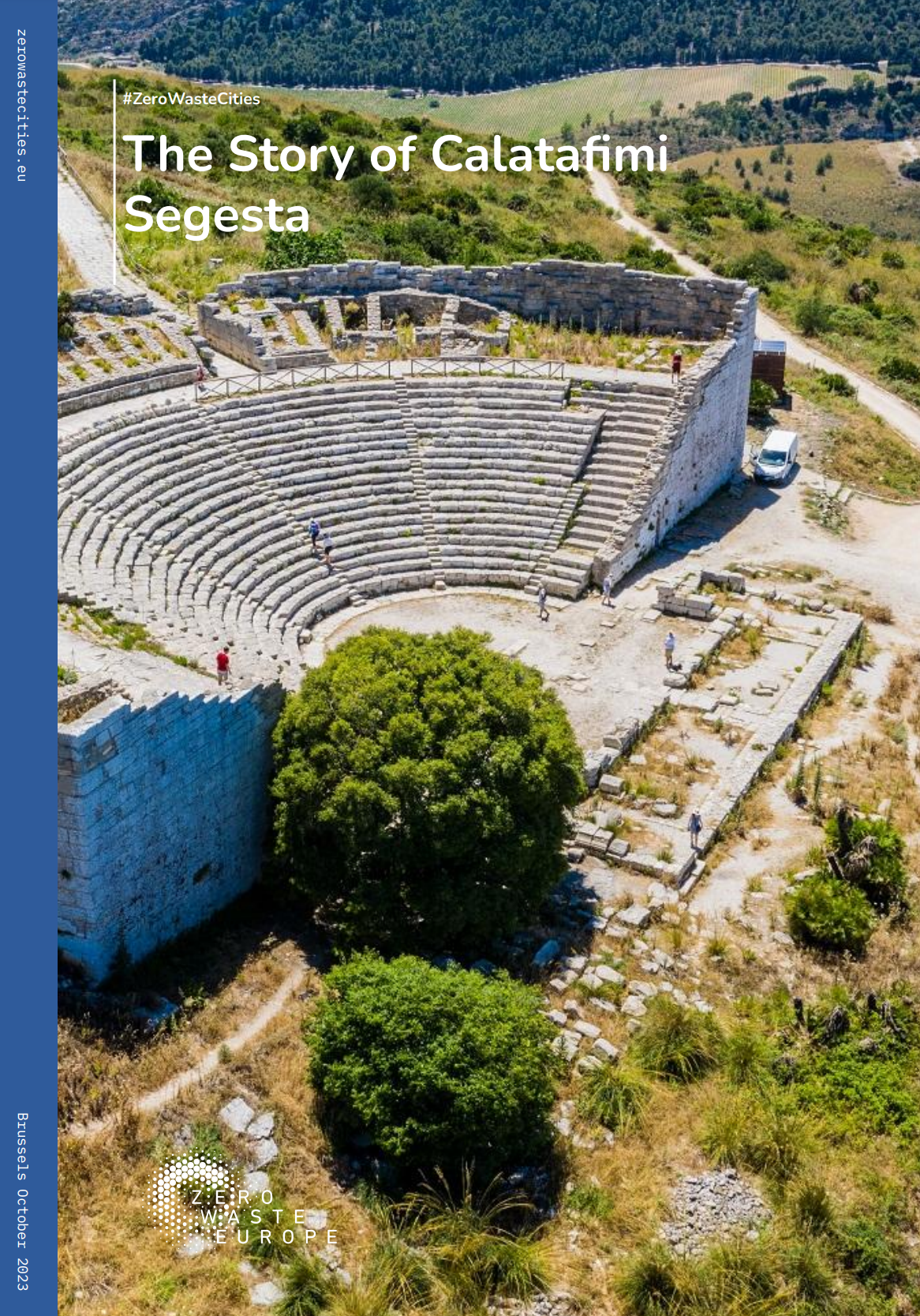
The Sicilian municipality of Calatafimi Segesta may be small, but it provides one of Europe’s leading examples of how an island municipality can implement an effective zero waste strategy whilst also focusing on improving the lives of the local community. Despite receiving high-levels of tourism each year and having a dense, historic area in its centre, Calatafimi Segesta still achieved a 85% separate collection rate and generated just 88kgs of residual waste per person in 2022.
The municipality achieved these impressive results through a process of implementing a zero waste strategy at its core, with a focus on door-to-door collection of materials and the prioritisation of capturing organics, with supplementary incentives offered to residents who home composted. The decision not to build or extend local incineration capacity has allowed the municipality to implement ambitious policies that have delivered results.
Since its political commitment to become a Zero Waste City in 2011, the municipality has doubled the amount of materials separately collected for recycling and reuse. In this same timespan, they have reduced the volume of residual waste by two-thirds.
Available in English and Italian.
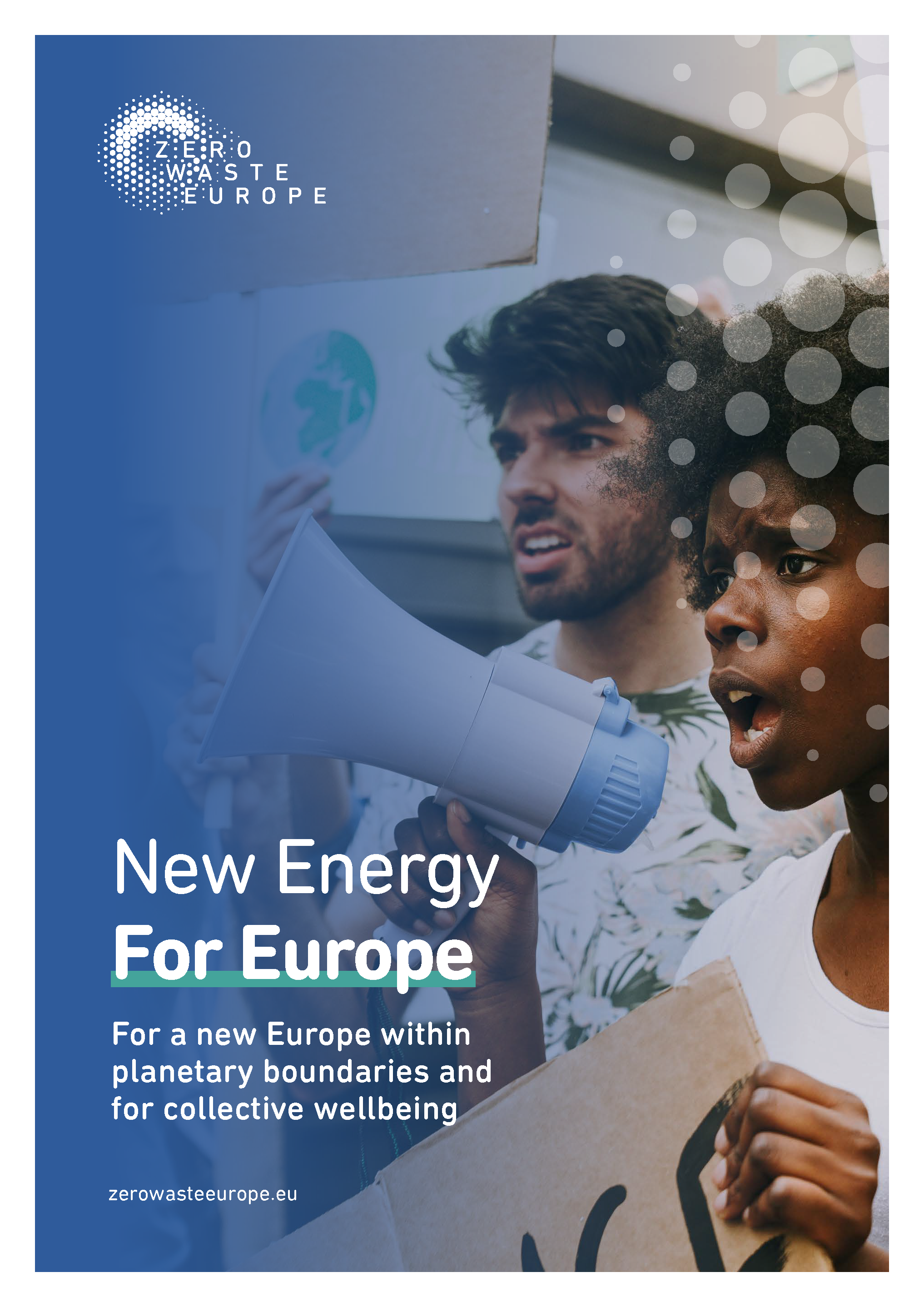
The European project as we know it is running out of steam and it is not capable of delivering on its objectives of peace, prosperity, and equality.
In order to stay within the commitment of 1.5°C degrees warming, the broken paradigm based on economic growth should be replaced with a new one. Our Manifesto calls on the need for building a new European project based on wellbeing, sufficiency, and resilience.
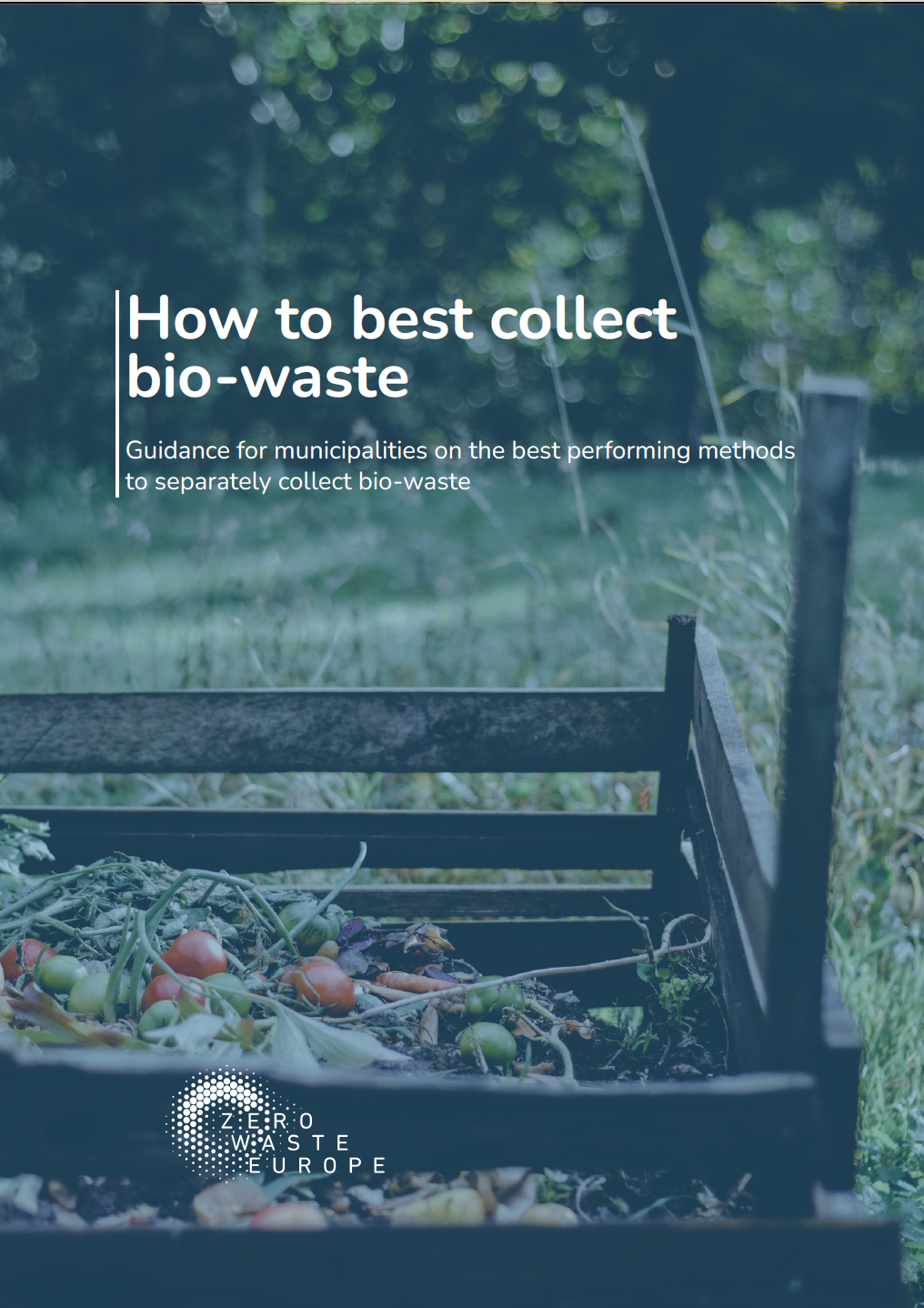
The EU’s Waste Framework Directive mandates that all Member States must separately collect bio-waste from 1st January 2024 onwards. With future recycling targets of 60 and 65% in the coming years, it is increasingly apparent that Member States must prioritise high-performing bio-waste collection models if they are to achieve the desired targets for recycling and the circular economy in Europe as a whole.
Ahead of this upcoming deadline, there is a growing risk of municipalities opting for cheaper, “easier” models that meet the required threshold of “separately collecting” organic waste, with the most common of these being large street containers/bins that municipalities sometimes opt for. With an urgent need to ensure that bio-waste collection systems are rolled out across the EU, as well as the wide range of economic, environmental and social benefits from effectively collecting bio-waste well, this paper has been designed to present key data on the performance of different collection systems for bio-waste from a variety of European regions and municipalities.
The data shown in this paper proves how door-to-door collection models for organics provide the best results – both for the quantity of material collected and the quality of such bio-waste. This guidance document also provides details on the key performance indicators for such systems, as well as a set of policy recommendations for municipalities who are seeking to implement high-performing organics collection systems in their communities. The results from this study are comprehensive – for any municipality wishing to collect high amounts of high-quality (low contamination) bio-waste whilst also saving costs, door-to-door collection is the proven best model for achieving such results.
Available in English, French, Italian, Portuguese, Ukrainian, Estonian, and Hungarian.
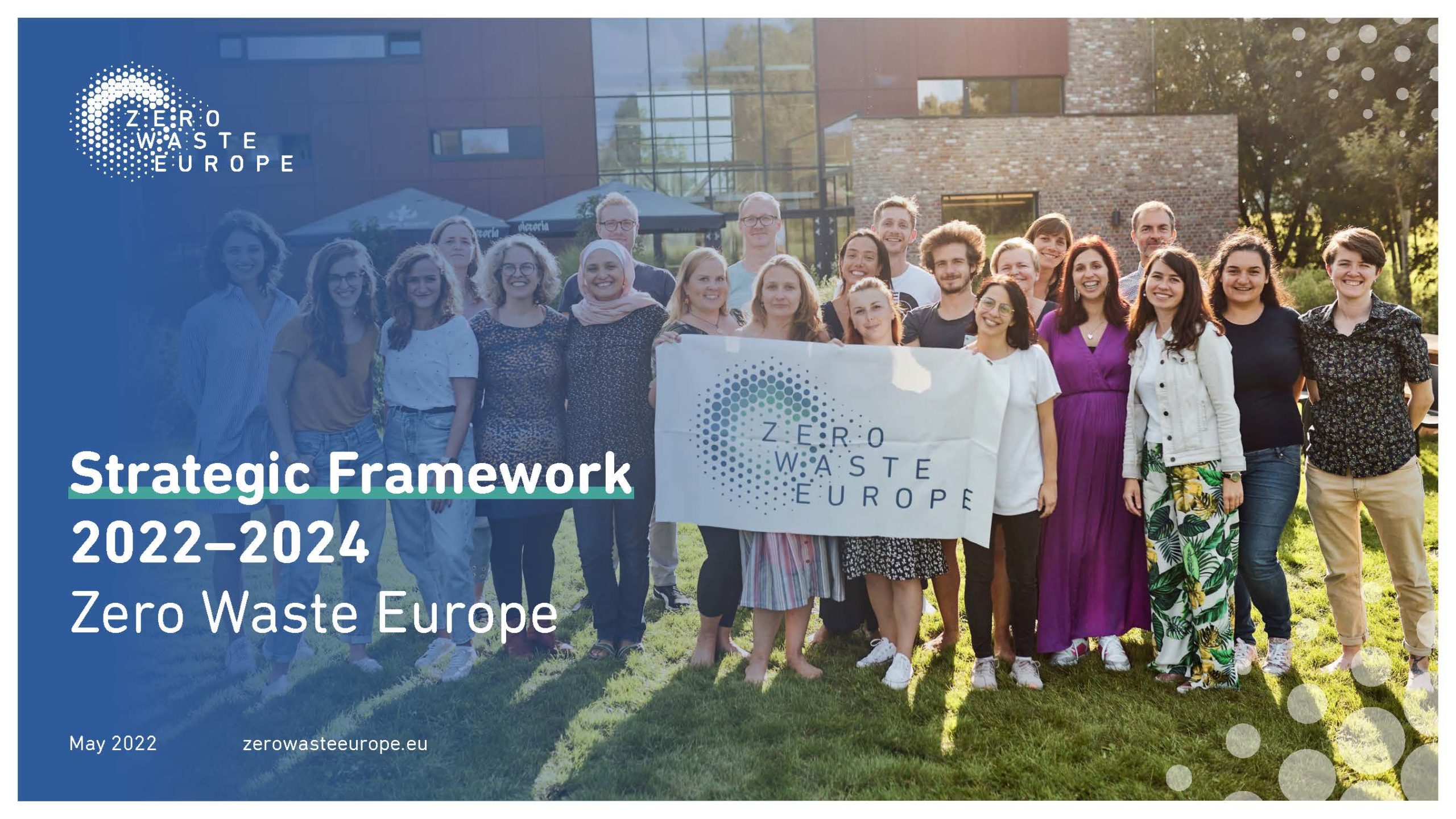
Europe is in the midst of a transition and zero waste is part of it.
Ten years ago, the concept of zero waste was laughed at. Today, zero waste is mainstream, from being considered a practical approach to implementing a circular economy to a trending lifestyle globally. The efforts from civil society groups in Europe and around the world pushed the debate higher in the waste hierarchy. If at any time over the last twenty years reuse and prevention had a chance, it is now. And ZWE is committed to bringing that change forward.
From a content perspective, for the next 3 years, we will focus on bringing IN incentives and funding for the transition, phasing OUT toxics, lifting UP reuse, pushing for BETTER recycling and bringing waste disposal DOWN.
Our Strategic Framework for 2022-24 outlines the ZWE roadmap and goals for the coming years, with the ultimate aim of helping us achieve a zero waste future for Europe (and for the world, while we’re at it).
Available in English.
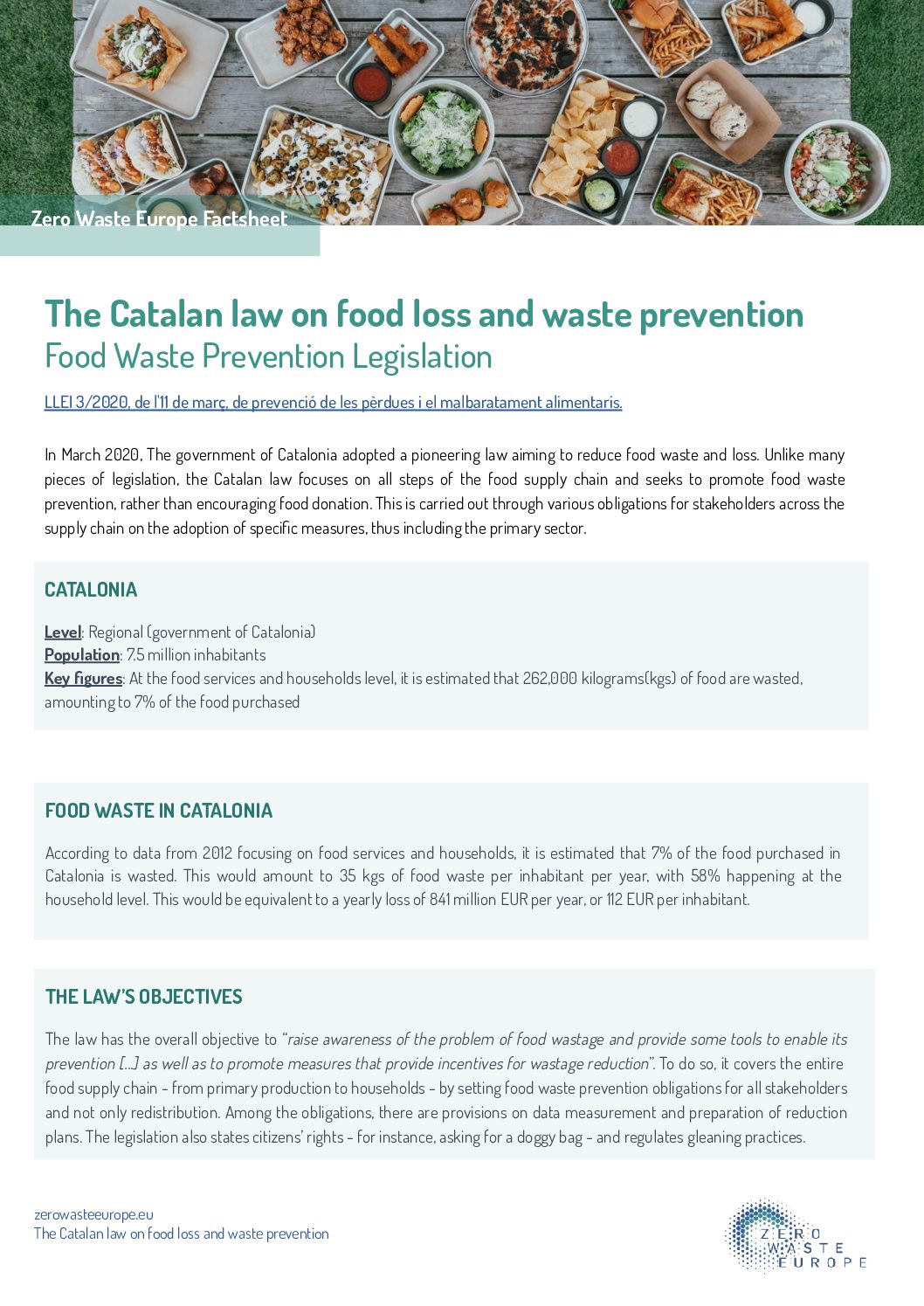
In March 2020, The government of Catalonia adopted a pioneering law aiming to reduce food waste and loss. Unlike many pieces of legislation, the Catalan law focuses on all steps of the food supply chain and seeks to promote food waste prevention, rather than encouraging food donation. This is carried out through various obligations for stakeholders across the supply chain on the adoption of specific measures, thus including the primary sector.
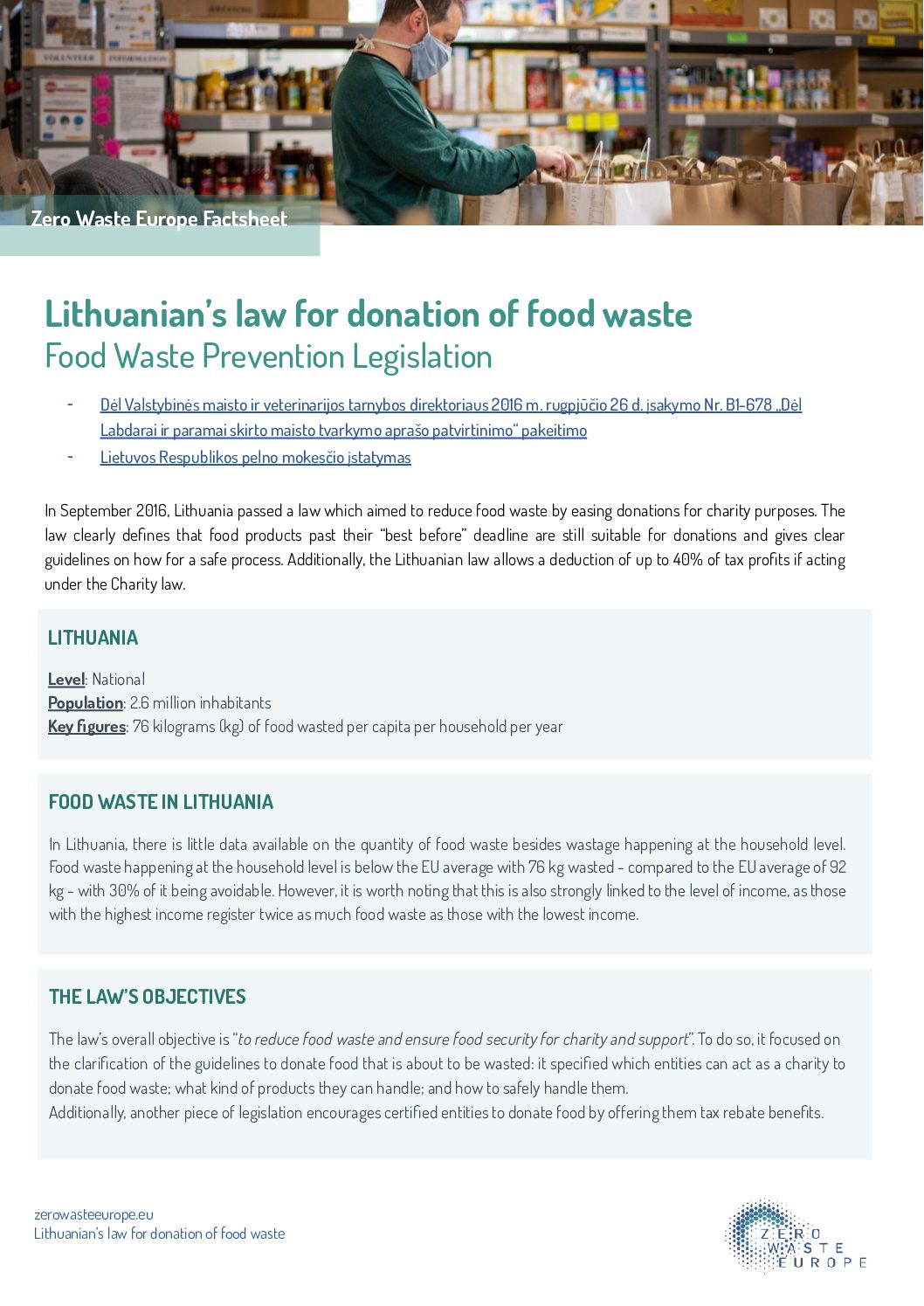
In September 2016, Lithuania passed a law that aimed to reduce food waste by easing donations for charity purposes. The law clearly defines that food products past their “best before” deadline are still suitable for donations and gives clear guidelines on how for a safe process. Additionally, the Lithuanian law allows a deduction of up to 40% of tax profits if acting under the Charity law.
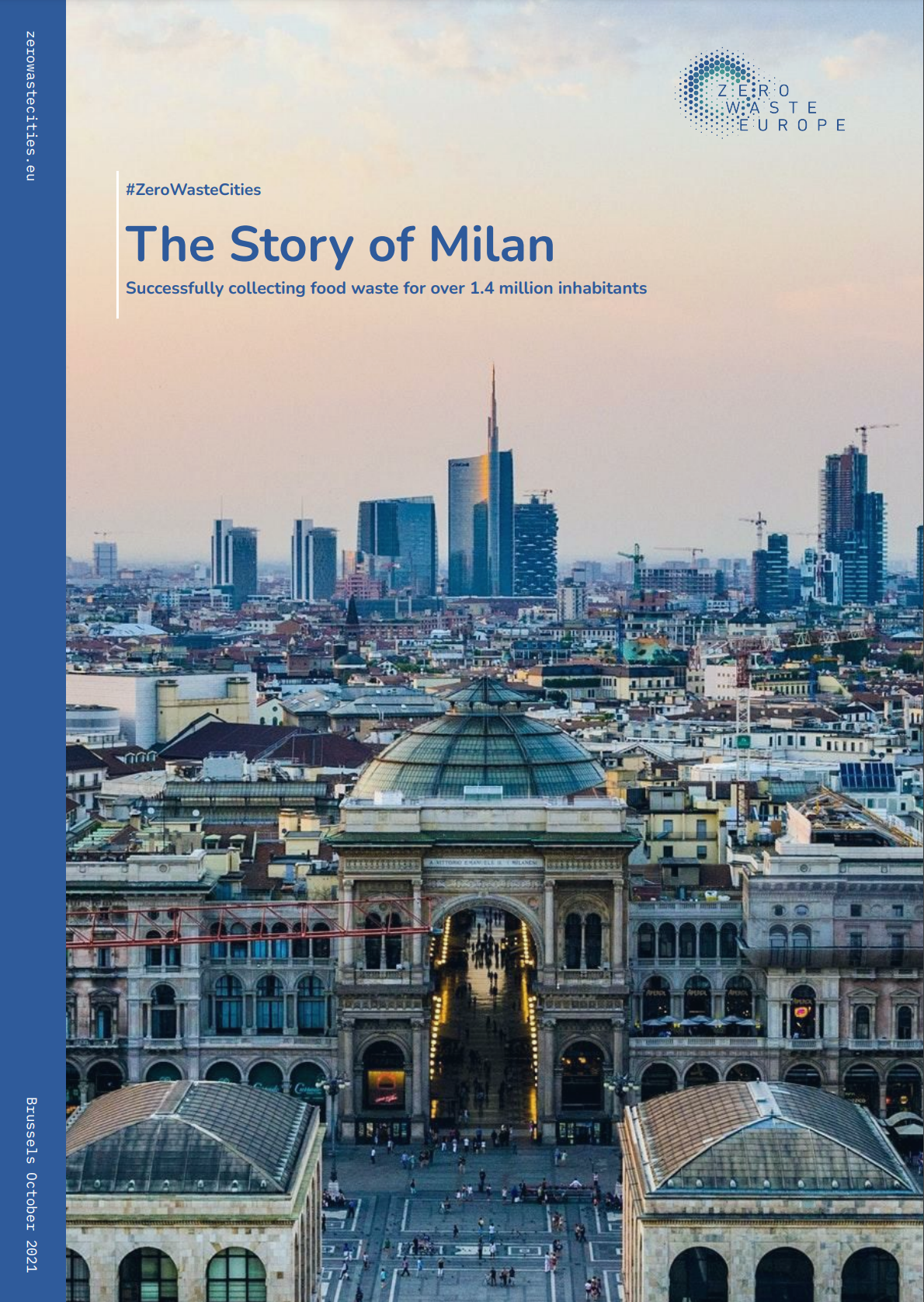
In 2011, the city of Milan started implementing an ambitious scheme to separately collect bio-waste and recycle it. With 1.4 million inhabitants and an extremely densely populated area, this wasn’t an easy task as bio-waste collection schemes are more difficult to set up in big cities. However, after 10 years, Milan is now one of the leading examples, with 95 kilograms of bio-waste collected per inhabitant and a 62% waste collection rate.
With the 1 January 2024 deadline for all EU Member States to collect bio-waste separately, the story of Milan shows how other cities across Europe can follow in their footsteps to effectively collect and manage food waste, even in the challenging circumstances that large, densely-populated cities provide.
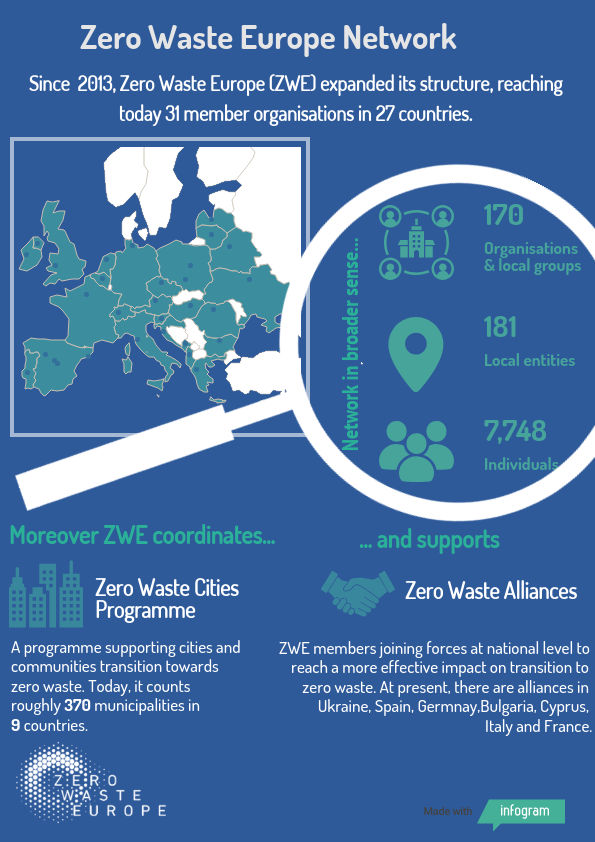
How big is Zero Waste Europe Network? How many are we? and what Network means in a broader sense? Find it out in our new infographic!
Available in English
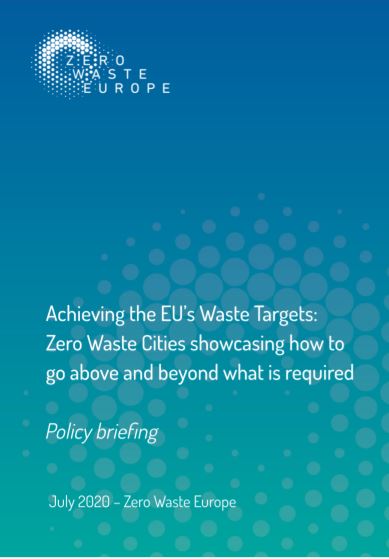
Zero Waste Europe released a policy briefing to act as a tool for those working at the city and municipal level in Europe. The briefing provides an overview of the key targets related to waste management that EU governments must achieve and by when, whilst also acting as a tool to help local zero waste groups and activists in their advocacy work.
Available in English and Czech.
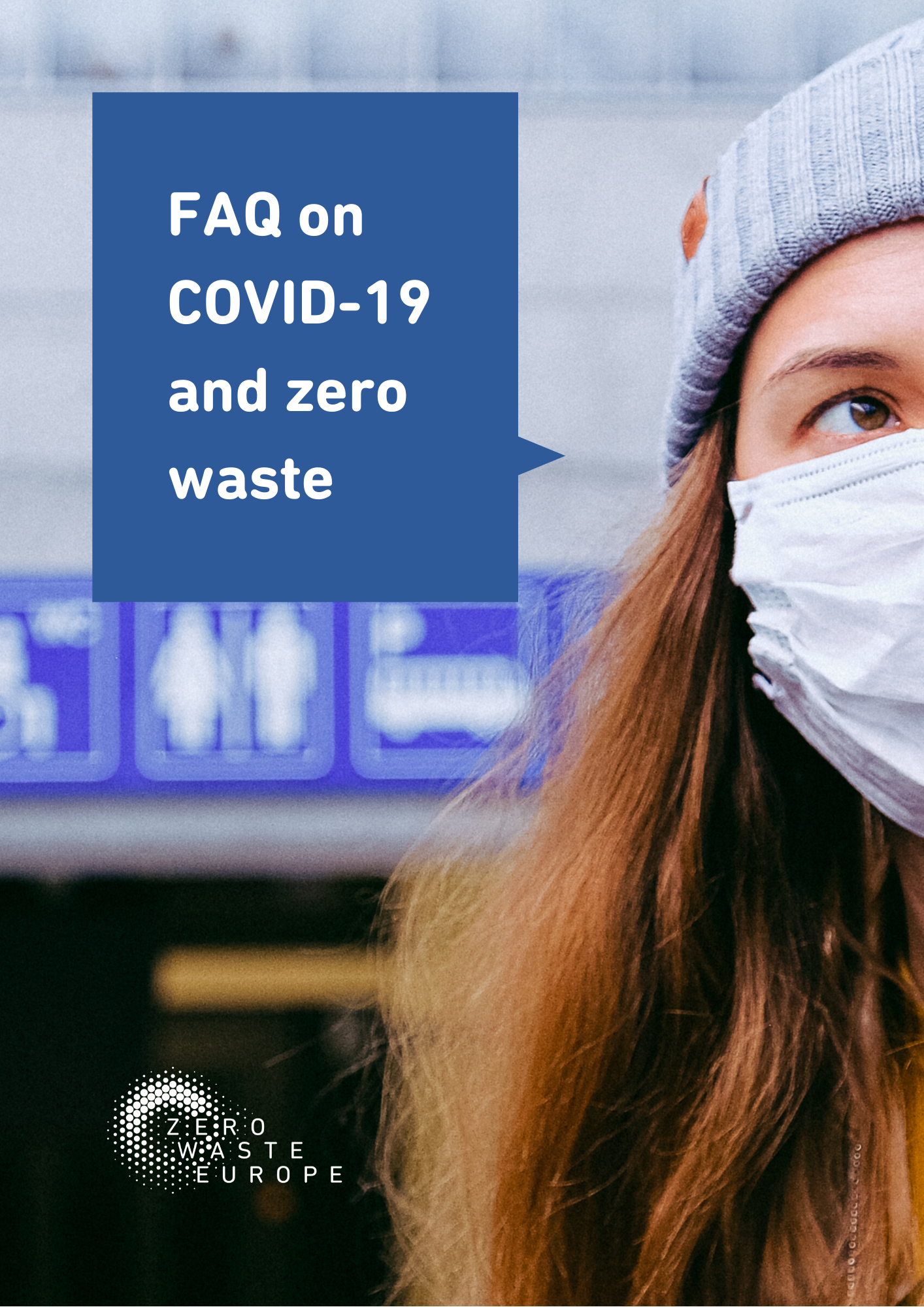
Zero Waste Europe analyses the impacts of COVID-19 on zero waste and suggests what can be done to keep working toward a zero waste future.
Available in English, Czech & Italian.
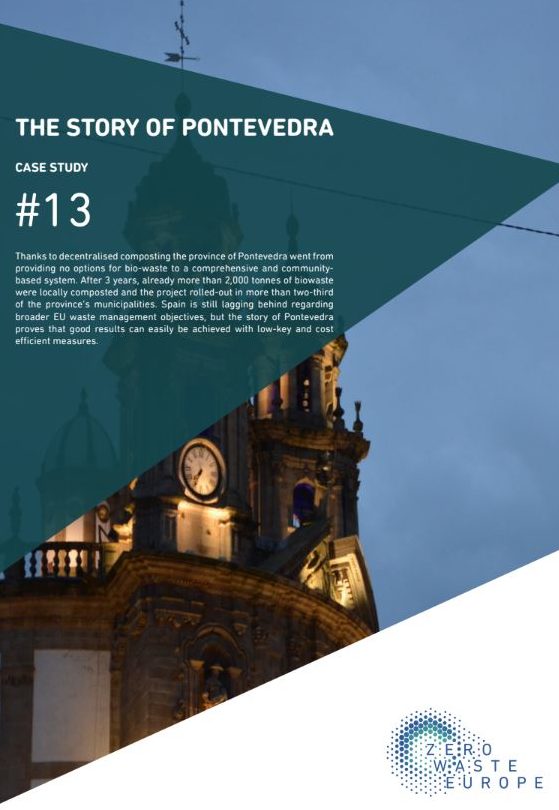
Thanks to decentralised composting the province of Pontevedra went from providing no options for bio-waste to a comprehensive and community-based system, establishing itself as a best practice example for bio-waste management in Spain and beyond.
Available in English & Spanish
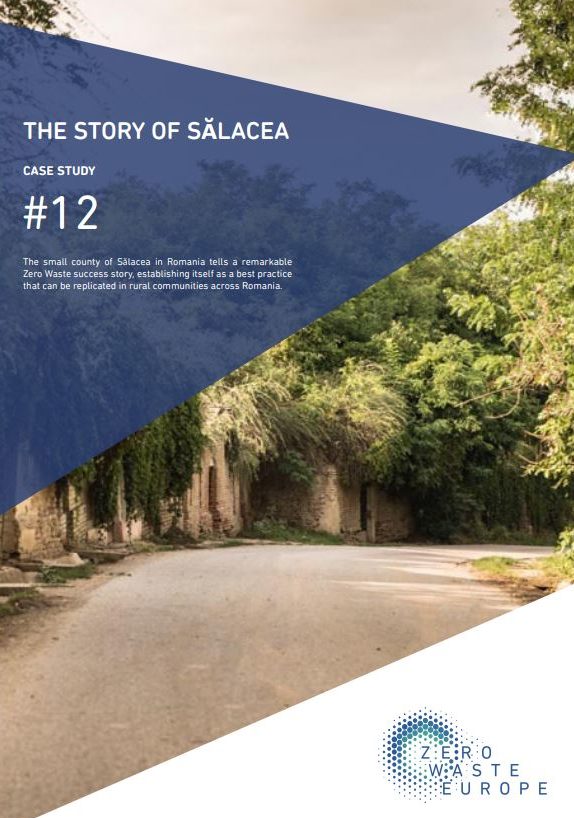
Going from a 0 to 40% recycling rate within 3 months, the small county of Sălacea tells a remarkable zero waste success story, establishing itself as a best practice that can be replicated in rural communities across Romania.
Available in English and Montenegrin.

After assessing that 750 000 kg of food were wasted every year, the city of Bruges lauched an ambitious Zero Food Waste strategy, becoming a European forerunner with 43% of food waste prevented in the healthcare sector.
Available in English and French.
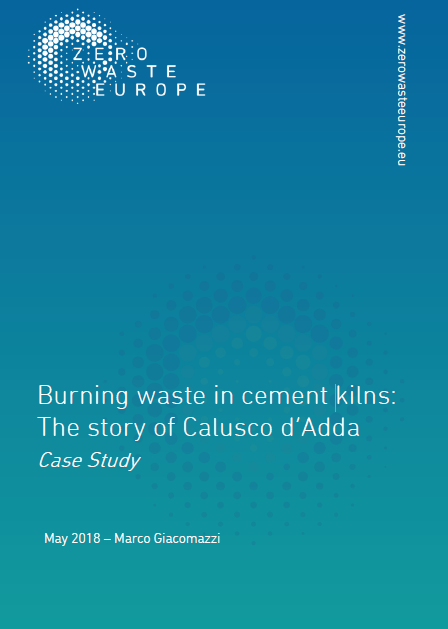
Burning waste in cement kilns is a widespread practice, but what is its impact on citizens’ health and the environment?
The story Calusco d’Adda shows how waste-based fuels can increase pollutants emissions with significant effects on human health.
Available in: English.

















